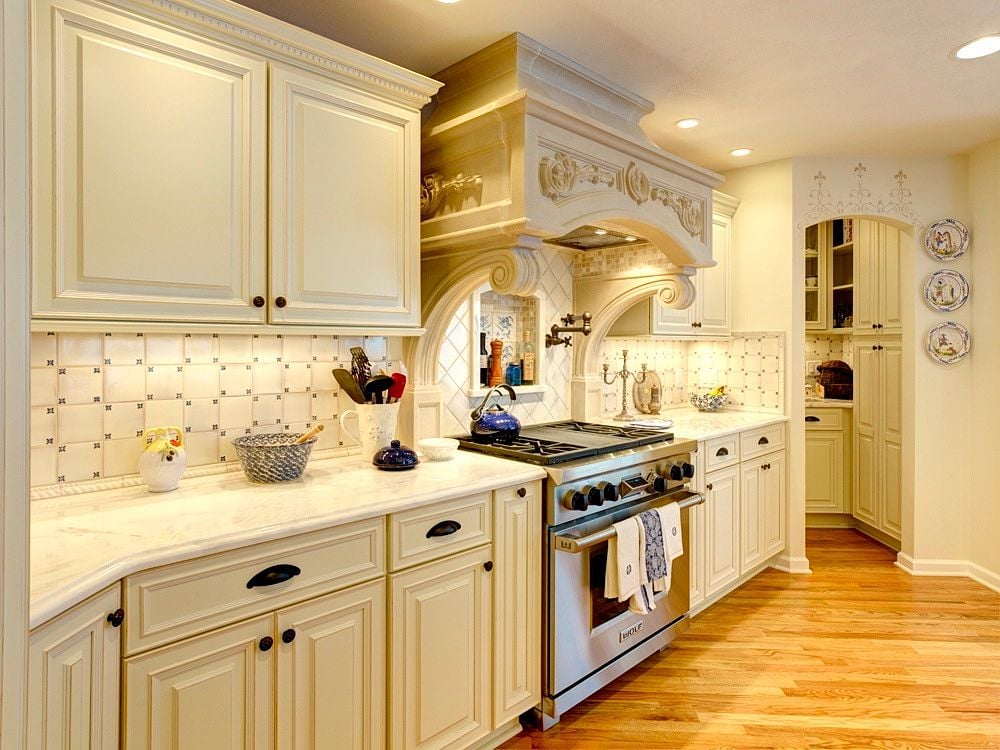Kitchen design styles change over time. If you’ve been considering an update or remodel of your kitchen you may have come across kitchen design styles with names such as Tuscan, Urban Chic, Classic, Country-French and others. All of these “design styles” fall within the three most popular kitchen design styles often referred to by the National Kitchen & Bath Association: Traditional, Contemporary and Transitional.
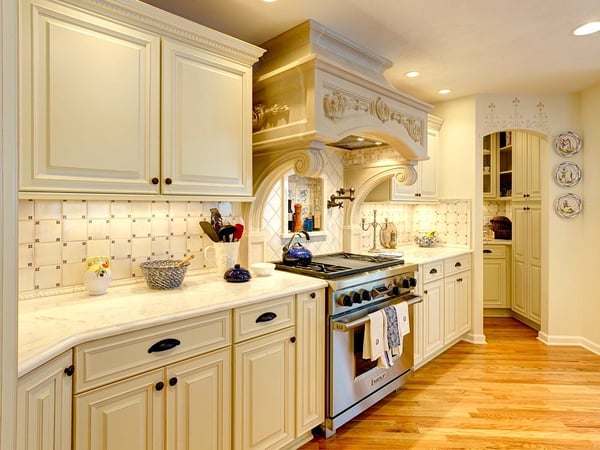
This traditional-style kitchen features carved corbels, classic crown molding, dentil molding, carved embellishments on the stone vent hood, hand-painted tile and marble counters with ogee edging.
Here is a description of each kitchen style and the design elements that define them:
Traditional Kitchens
Traditional-style kitchen interiors feature classic details found in Old World European and American colonial period décor. These details include turned pilasters, furniture-style cabinet ornamentation, rich woods and wood finishes such as cherry or mahogany, marble counters, classic crown molding, dentil molding and decorative tile. Cabinet door styles include raised panel designs such as Cathedral Arch and Curved “Eyebrow” Arch. Interior design styles that fall within the traditional kitchen category include:
- American Colonial
- Country French
- English Country
- Mediterranean
- Tuscan
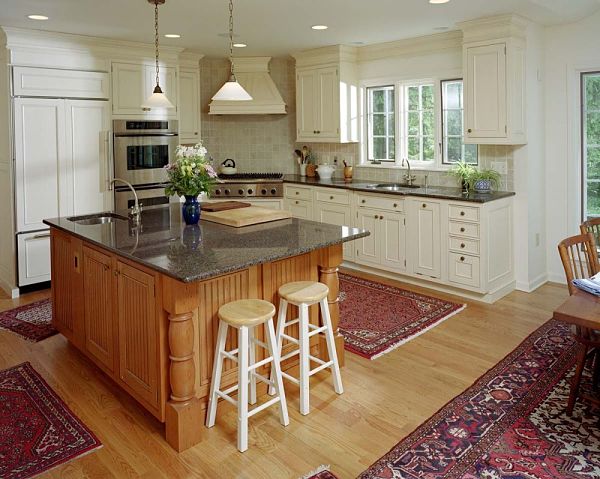
White cabinets, classic crown molding and a maple island with turned pilasters and wainscoting complement the colonial-style dining set in this traditional-style kitchen.
Contemporary Kitchens
Minimalism, simplicity, geometric shapes and clean lines are the main design elements of contemporary–style kitchens. Cabinet door styles used in contemporary-style kitchens include slab front cabinets (solid doors with no inset panel or frame) or Shaker-style cabinets. Bar pulls are sometimes used on the cabinets as a simple decorative detail. Appliances are state-of-the-art. Stainless steel finishes are used to create an industrial look. Furnishings and accents are geometric in form. There is often a contrasting color or graphic artwork used in the room as a focal point. Contemporary design styles that include these elements include:
- Art Deco
- Mid-century Modern (Retro designs from the 1950s and 1960s)
- Modern
- Urban Chic
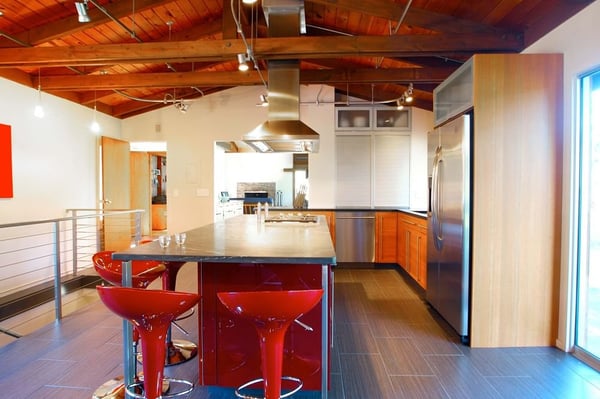
This award winning contemporary kitchen features slab front cabinets, stainless steel appliances, industrial style tract lighting and a red island with metallic trims and sculpted modernistic seating. The chimney-style vent hood, beamed ceiling and iron railings are important architectural elements in the room.
Transitional Kitchens
Traditional and contemporary elements come together in transitional kitchen design. Cabinetry is often Shaker-style or Mission-style with clean simple lines that can be trimmed with classic crown molding. Transitional design styles that reflect the fusion of modern and vintage elements include:
- Arts and Crafts
- Coastal
- Eclectic
- Shabby Chic
Transitional-style kitchens are currently the most popular kitchen design style according to the National Kitchen & Bath Association. They are also the most popular here in Central New York. Styling is practical, functional, warm and can be personalized.
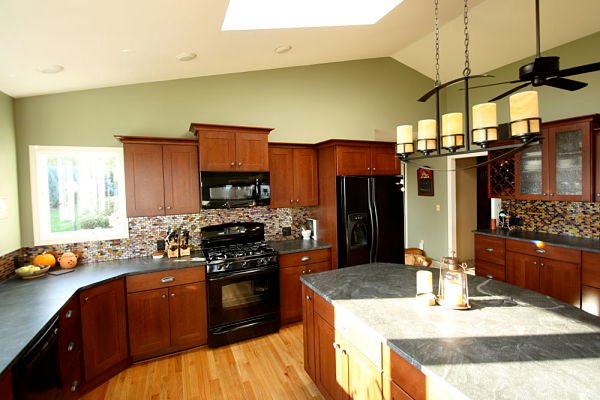
Shaker-style cabinets in a warm cherry stain finish ground traditional and modern elements in this transitional-style kitchen. A soapstone counter was used on the large island. A mosaic glass backsplash adds color and interest to the kitchen. The Arts and Crafts-style light fixture that illuminates the island is a focal point in the room.
